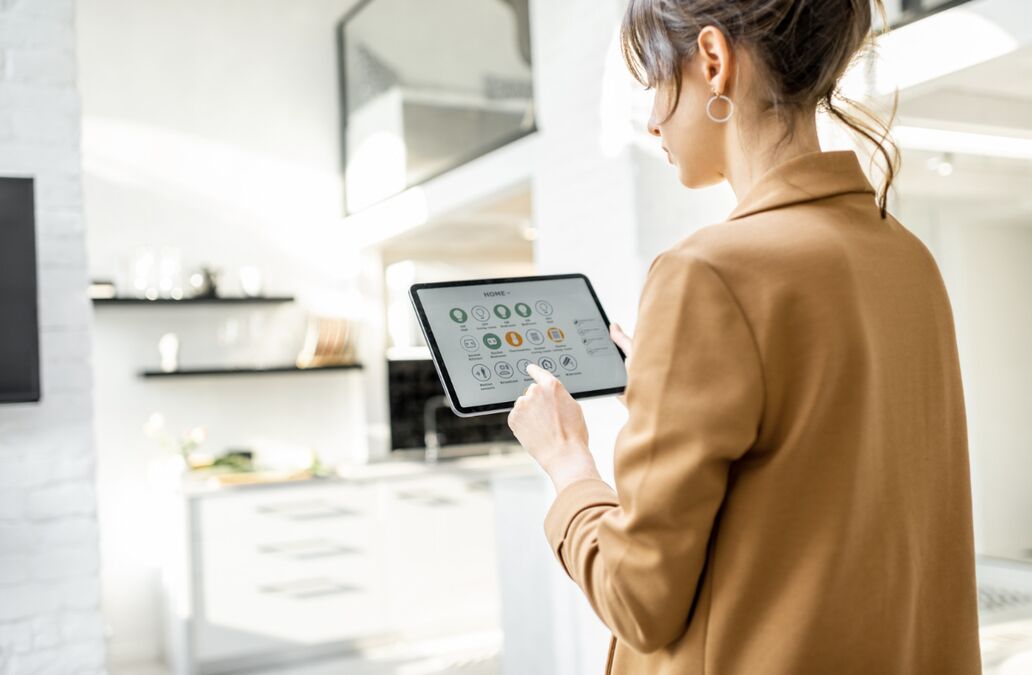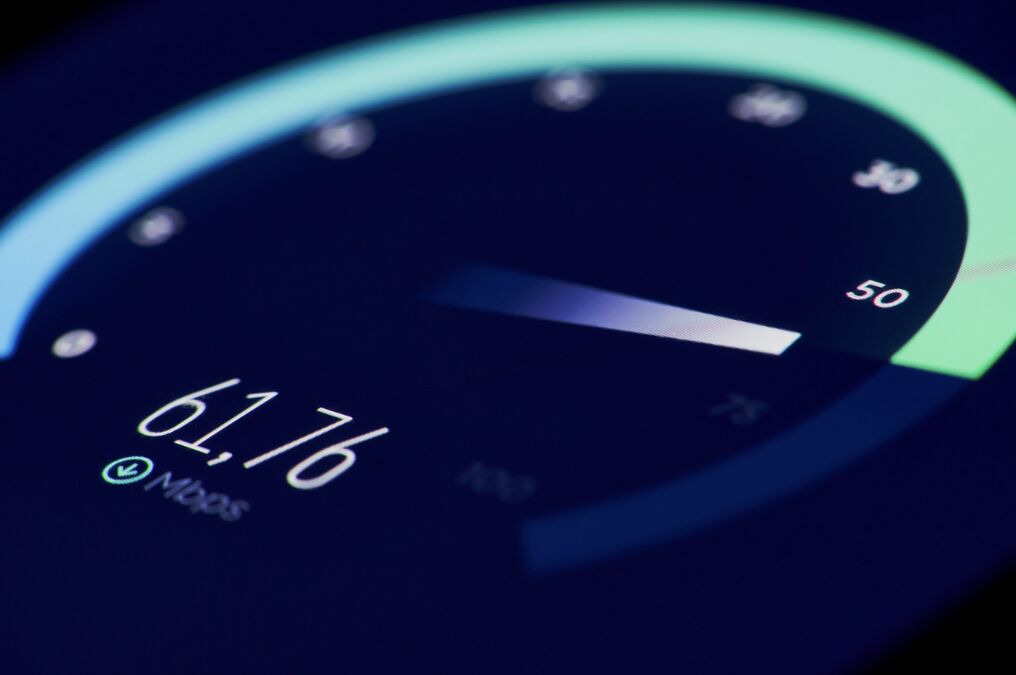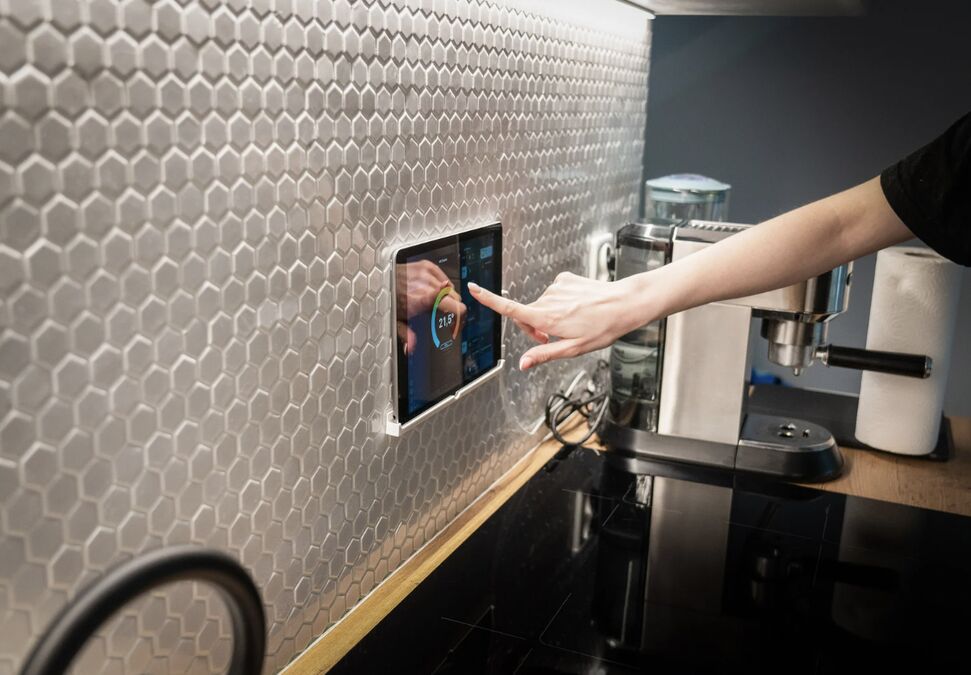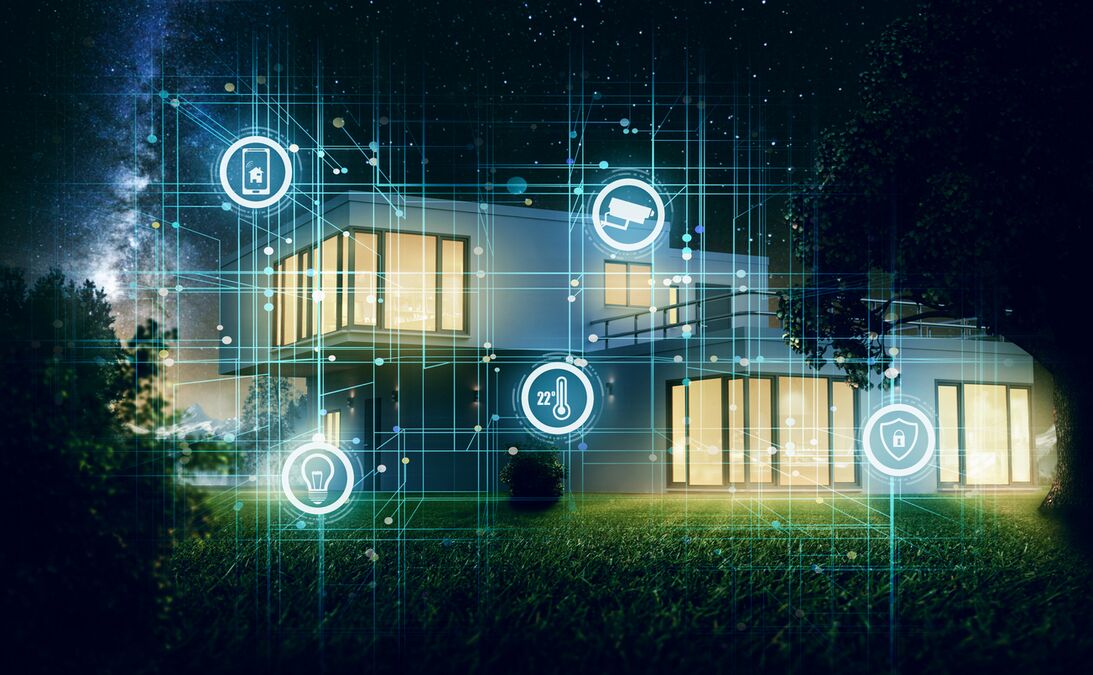
Book your free smart home consultation today
Find out more
Book your free smart home consultation today
Find out moreSmart home systems are growing in popularity, but the smart home is not without its issues. Homeowners who make the switch to smart home system can face frequent issues if these aren't addressed during the installation. The most common cause of smart home frequent issues is incorrect choice of equipment and poor set up.
To ensure your smart home devices work correctly, we recommend professional installation. Working with a professional smart home installation team will also help you to select the right smart home tech for your property. In this guide, we're going to explore some of the most common smart home frequent issues that could be preventing you from making the most out of your smart home automation.

We regularly visit properties where the homeowner has tried the DIY approach to set up a few smart gadgets and have instead run into compatibility issues, connectivity issues and these all too common smart home frequent issues. Individuals are also naturally concerned about security and privacy concerns. To help you to understand why your home home isn't working as it should, read on to leave the top 7 smart home frequent issues.

A common problem with your smart home upgrade could be down to relying on a poor internet connection. This could be due to the size of your property, your broadband package, or the quality of your internet service provider. You need to have an internet connection that is capable of supporting a wide range of electronic devices. The internet connection often makes it possible to have interconnected devices that talk to one another, so if your internet connection is overwhelmed, this will be an ongoing problem for you.
It can be inconvenient if your connection between wireless devices is too slow to allow everything to operate on the same network, but it can also be troubling if your wireless network regularly fails and takes down your security cameras and other security systems. Before installing a smart home system, make sure you check that your wi fi network is up to the task and that your wi fi router is positioned in the right place.
If you have selected battery powered devices rather than mains powered devices, then you will be immune from power outages interrupting your service. However, you will need to keep an eye on the battery status to ensue everything keeps working correctly. If each of your smart devices has its own power supply, you'll need to keep an eye on all the different devices. A combination of backup battery power and mains power is one of the best ways to ensure you have an uninterruptible power supply.
Smart devices work best when they can communicate with each other, but to do this, they need to be able to connect to each other. One of the best ways to make the most of your device's settings is to enable mesh networking. This will provide the best coverage and will enhance connectivity between different smart devices together. This will enable greater connectivity, allowing you to truly automate your home. It can make life easier when your smart devices work in harmony. For example, you could have your smart thermostats set to power down when your door sensors detect that you have left the house.

With centralised smart home hubs, you need to make sure that all devices are within the range of your chosen smart hub. This will only be the case if you use IP connectivity for network devices. If your devices such as your smart lights and smart cameras are hard-wired into yoursmart home hub, then this won't be an issue.
Sometimes your smart home devices may be triggering at the wrong time, such as when you're away from home. This is usually because of something called geofencing. Geofencing requires a combination of GPS coordinates and Wi-Fi connections to determine when a user has left or entered an area. This means that if your smart speakers device's geofence settings are incorrect, it could trigger when you're not at home.
Smart technology is only as secure as its weakest link, and smart home devices are no exception. Security can be a major issue when it comes to the smart home, so make sure that your IoT system has adequate security settings in place. Make sure you regularly update your devices with the latest security patches and always use strong passwords.

Finally, one of the most important things to consider when setting up a smart home system is ensuring that you have an alternative control mechanism in place. This means having physical controls for devices such as thermostats and lighting so that if there's ever a power outage or Wi-Fi connection issue, then other electronic devices in your home can still be controlled. This will also provide extra security so that even if your smart home is hacked, it will still be possible to control certain aspects of the system.
A professional installation team can help you to get the most out of your smart home devices and can ensure that all the above issues are prevented. Working with an experienced and qualified firm for your smart home installation needs could save you a lot of time and money in the long run. Not only will they help to choose the right devices, they can also ensure correct wiring and configurations so that you don't have to worry about any compatibility issues. They can also provide advice on security settings and backup controls to make sure other smart devices in your home is safe, secure and easy to use.
The most common negative effects of smart homes include poor battery life, inadequate security measures, compatibility issues between devices, lack of a backup control system and no internet connection. If smart zones are not set up properly, your home could be vulnerable to cyber-attacks and interference from outside sources.
Mesh networking is a type of network topology in which the individual network nodes connect to each other rather than being connected directly with the main hub. Mesh networking allows devices to communicate with each other more easily, creating a stronger and faster network connection. This is ideal for people who have multiple smart home devices as it means they can be connected on the same network without relying on internet connectivity.
A smart home device may stop working for various reasons such as poor connectivity, battery depletion, being out of range from the smart home hub, or due to a system error. It's crucial to maintain regular checks on the device's functionality and perform system updates when available.
Improving the connectivity of your smart home devices can be achieved by enabling mesh networking, positioning your Wi-Fi router in the optimal location, and making sure that your internet connection is robust enough to handle the data traffic from all your devices.
To enhance your smart home's security, ensure that your IoT system has adequate security settings in place. Regularly update your devices with the latest security patches and always use strong, unique passwords. Additionally, consider a backup control mechanism for physical control of devices in case of system failure.
If your smart home device's battery is always running low, consider using mains powered devices or a combination of mains power and backup battery power. Regularly check the battery status of each device to ensure they are functioning correctly.
Are you ready to live in a smart home? Please leave your details below and a member of our team will be in touch to book a FREE consultation and talk you through the possibilities for your new SMART home.



